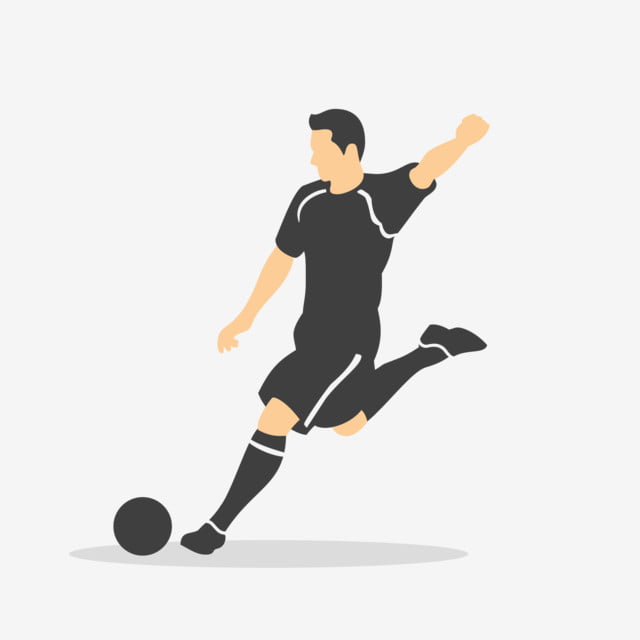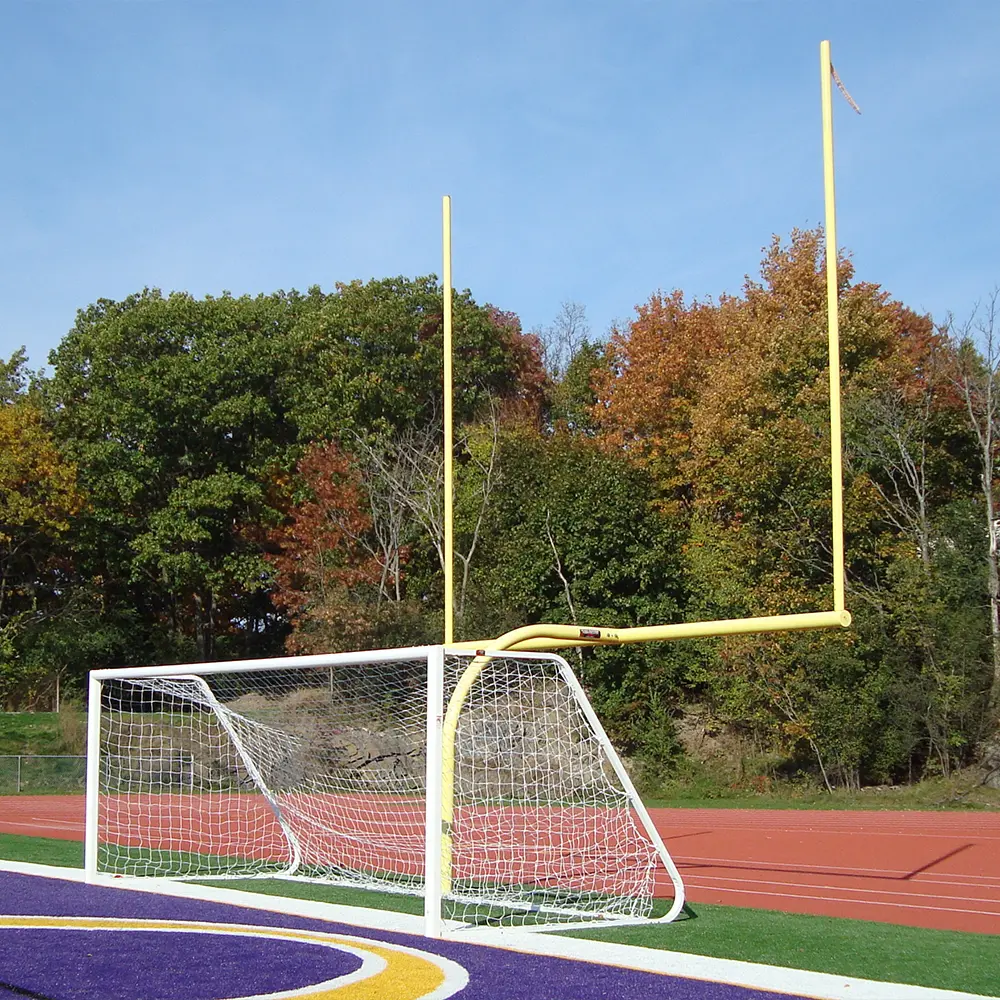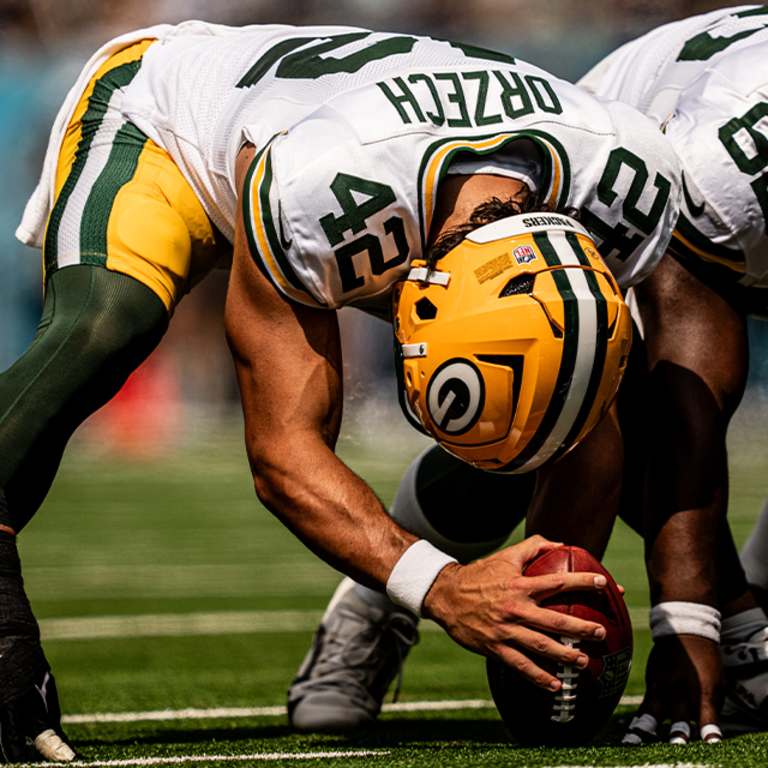Assessing Your Physical Attributes
What position should i play in football? Choosing the right football position starts with understanding your physical capabilities. Your unique attributes can hint at where you’d excel on the field. Let’s break it down.

Analyzing Your Speed and Agility
Are you quick on your feet? Your speed and agility are vital if you’re eyeing positions that require quick bursts or rapid direction changes. Wide receivers, defensive backs, and return specialists often stand out in these areas. Assess your 40-yard dash time and agility drill scores to gauge your aptitude.
Evaluating Strength and Power
Football is a contact sport and your strength plays a pivotal role. Offensive and defensive linemen need power to dominate the line of scrimmage. Fullbacks and linebackers also benefit from this trait. Regular strength and resistance training can increase your capabilities, so consider your current regimen in this evaluation.
Considering Your Body Type and Size
Your body type and size should guide you toward suitable positions. Larger players may find their calling on the line, while those with a smaller stature may fit better in roles that capitalize on speed and elusiveness. Reflect on how your physical dimensions match up with various football roles.

Understanding Key Offensive Positions
Quarterback: The Field General
In football, the quarterback holds a central role, directing the team’s offense. To play this position, think of your ability to lead and make quick decisions. A quarterback needs a strong arm to throw, sure vision for reading defenses, and mental agility to adjust strategies.
Running Backs: The Power Runners
Running backs are the driving force behind the ground game. Ask yourself if you have the stamina, strength, and agility required. Running backs must break tackles, catch passes, and sometimes block. Your build and power are key signs that you might fit this role.
Wide Receivers: Speed and Precision
If you’re swift and have fine-tuned coordination, consider wide receiver. This position demands fast players who can run precise routes and catch with assurance. Your speed and agility, discussed earlier, should align with the needs of a wide receiver.
Offensive Linemen: The Unsung Heroes
Offensive linemen are the foundation of a successful offense. They protect the quarterback and create paths for running backs. Evaluate your size and strength for this crucial but often overlooked position. Linemen need exceptional power and a team-first mentality.
Exploring Key Defensive Positions
Defensive roles in football are just as vital as offensive positions. The defense thwarts the opposing team’s advances, aiming to prevent scoring. Knowing your skill set is crucial in selecting the right defensive position.
Defensive Linemen: The First Line of Defense
Defensive linemen are front-line warriors. They must be strong and able to resist the push from offensive players. Size, strength, and explosive power are key. Think about how well you engage with opponents at the line. Can you overpower or outwit them? Your build and how you handle physical battles could signal if this is your fit.

Linebackers: Flexibility and Toughness
Linebackers need a special mix of skills. They are the defense’s backbone and require both strength and agility. Quick thinking and versatility play big roles here. Can you tackle hard and cover receivers if needed? Your ability to adapt and respond in varied situations might make linebacker your ideal spot.
Defensive Backs: Speed and Awareness
Defensive backs protect against the pass and make game-changing plays. They must be fast and have a sharp eye for the ball. Speed, agility, and quick reflexes help in covering wide receivers and intercepting passes. Consider your quickness and ability to anticipate the offense’s moves. These traits are crucial for a defensive back.
Special Teams: Mastering the Third Phase
Special teams play a critical role in football, often being the deciding factor in close games. Mastering this third phase can shape the game’s outcome.
Kickers and Punters: Precision and Poise
Kickers and punters require a unique set of skills. They should have precision, poise, and the ability to perform under pressure. Being a kicker or punter means you need to have a strong, accurate leg. You must also stay calm during high-pressure moments. These positions may not require the physicality of a lineman or the speed of a wide receiver, but mental toughness is key.
Return Specialists: The Art of Evasion
Return specialists must be elusive and fast. In the role of kick or punt returner, agility is your best friend. You need to dodge opponents and find paths through fast-closing gaps. Good hands are also a must, as securing the ball is the first priority. If you have a knack for evasion and can make quick decisions on your feet, consider the electrifying role of a return specialist.
The Importance of Football IQ and Game Knowledge
While physical attributes are crucial, understanding the game sets great players apart. Football IQ involves more than just raw talent. It includes reading the game, strategizing, and making informed decisions quickly. This knowledge can give you an edge, whatever position you play.
Reading the Game and Anticipating Plays
Successful players often predict what will happen next. They watch formations and player movements closely. This skill allows them to react swiftly and appropriately during a play. For example, a running back might spot a gap before it opens. A defender could foresee a quarterback’s pass. Sharpening this ability to anticipate is vital for your performance.
The Role of Study and Preparation
Good players spend time off the field studying. They watch game footage to understand opponents’ strategies. They learn from their own team’s past games. Preparation also means knowing the playbook inside out. This dedication to study and preparation is as important as physical training. By mastering these aspects, you ensure you’re not just physically but also mentally fit for your chosen position.
Making the Decision: Which Position is Right for You?
After evaluating your physical attributes and understanding the key roles within a football team, the next step is choosing your position. This decision isn’t just about personal preference but also depends upon aligning with the team’s needs.
Balancing Personal Preference with Team Needs
While pursuing the positions you are drawn to is important, the path to becoming an integral team member might require compromise. Start by making a list of positions that you are interested in and that cater to your strengths. Then, communicate with your team’s coach to understand which roles are in demand. This approach ensures you find a sweet spot between your desires and the team’s strategy.
Getting Feedback from Coaches and Players
Coaches bring years of experience to the table and can help identify your best fit. Seek their advice, and consider their feedback seriously. Additionally, talking to experienced players offers insights beyond the theoretical aspects of the game. Their advice can provide a practical viewpoint on how your skills could translate to live-game situations. Often, coaches and players can see potential in you for a particular role that you might have overlooked.
In the end, selecting the football position that aligns with what skills you bring and what the team needs is a key step towards your success on the field. Remember, whether you’re a prospective quarterback with a powerful arm or a rapid wide receiver, your journey to finding the right position is an exciting process that requires careful thought and open discussion.
Preparing for Your Chosen Position
Once you’ve determined what position you should play in football, the next step is preparation. Excelling in your chosen role necessitates developing certain skills and engaging in both physical and mental training tailored for that specific position. Every role on the football field has unique demands, so your preparation must be equally bespoke.
Developing Position-Specific Skills
Crafting your expertise for a specific football position requires focused practice and drilling the essential skills needed. For quarterbacks, this means enhancing passing accuracy, working on footwork, and practicing throwing on the run. Linemen will concentrate on improving their blocking techniques and first-step quickness. Wide receivers and defensive backs must work on their route running and ball tracking ability, respectively. The key is to identify the skills that are most crucial for your position and practice them consistently. Drills specific to your role will not only hone your talent but also build the muscle memory required during high-pressure game situations.
Physical and Mental Conditioning
In addition to skill development, optimum physical and mental conditioning is vital. Strength training is essential across all positions to enhance power and reduce injury risk. Meanwhile, agility drills can improve your quickness and body control. Endurance training, such as running or swimming, will keep you fit for the duration of a game. Mental conditioning, including studying playbooks, visualizing game situations, and maintaining a focused mentality, can’t be overlooked. A well-conditioned mind is as critical as a prepared body. It will help you make split-second decisions and remain calm when the game is on the line.
Fortifying your skills and conditioning for the field is a continuous journey. Collaborate with your coaches, seek out position-specific training programs, and always push yourself to improve. The dedication you put into preparing for your position will pay dividends when it’s game time.
